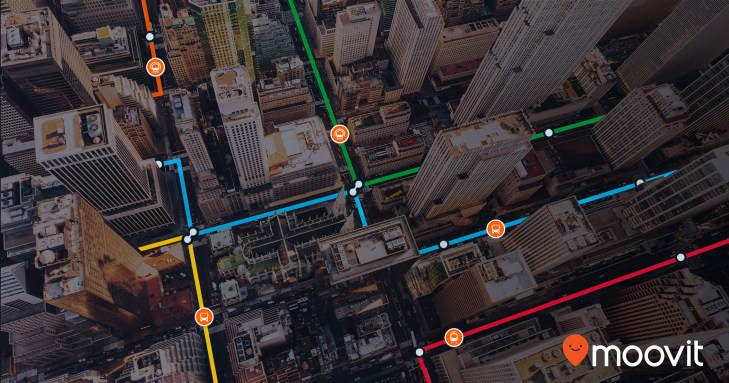The race for pole position in the next generation of transportation services continues to gain speed, and today a startup providing data on how best to navigate transit in urban environments is announcing a significant round and partnership to help it get out in front.
Moovit — the Israeli startup whose iOS, Android and Web apps are now used by 120 million people globally across 2,000 cities in 80 countries — has raised another $50 million in funding.
The Series D was led by Intel Capital, and it is a strategic investment. As part of it, Mobileye, the $15.3 billion Intel subsidiary that builds autonomous driving solutions, will be partnering with Moovit to incorporate its data into Mobileye’s navigation system.
(And as part of it, significantly, Professor Amnon Shashua, Senior Vice President of Intel and CEO / CTO of Mobileye, is joining Moovit’s Board of Directors as an observer.)
Others in the round included all of the startup’s previous investors: Sequoia, BMW iVentures, NGP, Ashton Kutcher’s Sound Ventures, BRM, Gemini, Vaizra, Vintage, as well as another new investor, Hanaco.
The plan will be to use the funding to expand the company’s tech and business development.
“Moovit expects to surpass 1 billion users by 2021 and to expand significantly the number of cities that use Moovit’s data analytics to improve urban mobility,” said Nir Erez, the co-founder and CEO, in a statement. “We are especially thrilled about our plans to collaborate with Mobileye. It’s a synergistic relationship at an exciting time to be shaping the future of urban mobility.”
To date, Moovit has raised around $131 million in funding, and while it’s not revealing its valuation, in its last round in 2015 it was valued at $450 million, and given its growth since then (it only had 15 million users at the time, versus 120 million today), it’s very likely that the valuation now is well above $500 million post-money. We’ll be asking Erez when we speak to him later, to see if we can shed more light on that front.
The deal comes at an interesting time in the navigation and mapping space. Citymapper, a mapping and transit navigation app based out of London, has been testing out different ideas to figure out how to monetise its service. One of the latest developments is building its own transportation offering using buses and taxis — although it will have a lot of pre-existing competition, including city’s own services and heavily capitalised startups like Uber.
Meanwhile, we’re also seeing ever more companies looking to get in on the act. In addition to public and private transit services, there are automakers like GM and Ford (which itself has its own growing pains), and tech companies that also want to bring their AI-based systems into the fray. Alexa for autos, in fact, is just today adding its first mapping services, by way of a partnership with Mapbox, to go head to head with Google Maps and Apple’s Maps.
Moovit is taking a different tack, in that regard, by striking commercial deals that will bring its data and analytics — by way of its Smart Transit Suite — into other services that are getting used in autonomous vehicles and other smart, connected cars. This suite is based around a data-in-data-out principle: Moovit partners with municipalities and transit operators to bring in their data to help them manage their networks as well.
Similarly, this will give Mobileye one more application to enhance its own service and offering to car makers. “With significant investments in automated driving, mobility management platforms and smart infrastructure, Intel is at the forefront of a fundamental transformation of urban mobility,” Shashua said in a statement. “We’re working with some of the most innovative transit companies, municipalities and transit authorities to build critical foundational technologies for this transformation.”
